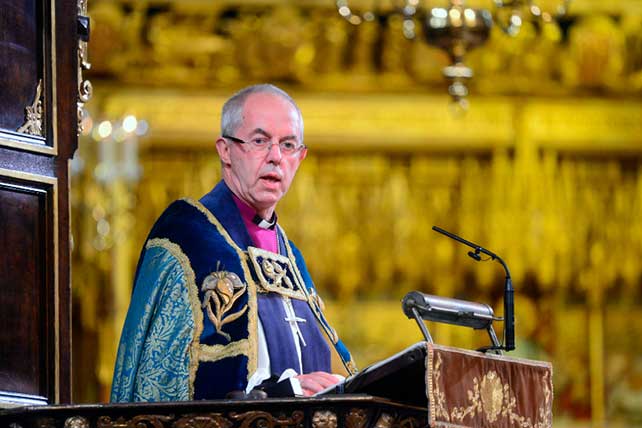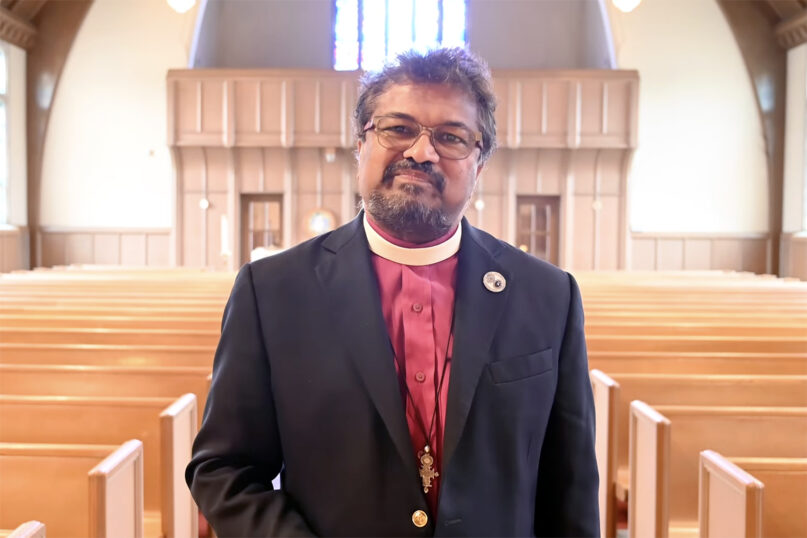The decline of church attendance in the United States may contribute as well. “Across Anglicanism, the groups are smaller, more stressed, and more closely knit. They’re tired and they’re afraid of losing what they love. Threats will be viewed with contempt, even and especially when they come in the form of a survivor seeking restitution.”
Denominations like ACNA, the Episcopal Church and ACC are also relatively small. The largest, the Episcopal Church, has just over 1.5 million members. (American Catholics, by comparison, number over 50 million.) The leaders in these Anglican bodies know each other well, and camaraderie among clergy can create barriers to accountability.
In the Episcopal Church, former Presiding Bishop Michael Curry and Bishop Todd Ousley, a former Office of Pastoral Development official, faced internal investigations after reportedly failing to initiate proper disciplinary proceedings against Prince Singh, a fellow bishop in Michigan, when Singh was accused by his family of alcoholism and physical and emotional abuse.
The Rt. Rev. Prince Grenville Singh, former provisional bishop of the Episcopal Dioceses of Eastern and Western Michigan, in December 2022. (Video screen grab/Episcopal Diocese of Western Michigan)
In December, the denomination announced that Singh, who resigned his bishop’s post in September 2023, would be suspended for at least three more years and can only return to ministry at the presiding bishop’s discretion. Curry and Ousley agreed to write apologies, and Ousley, previously the point person on misconduct claims against bishops, was required to undergo training. Days later, the Diocese of Wyoming nominated Ousley to serve as provisional, or interim, bishop.
“Ousley is being allowed to fail upward as if nothing happened,” said Heather Griffin, an anti-abuse advocate who has worked with survivors of abuse in both the ACNA and the Episcopal Church.
Episcopal polity gives the national church more power over bishops and their dioceses, but the more-decentralized ACNA and ACC allow bishops more autonomy, including in enforcing abuse protocols in their dioceses.
In a November 2024 letter, acting Primate Anne Germond — the convening bishop of the ACC — said abuse allegations are “not within the purview of the Primate.” According to the Rev. Martha Tatarnic, rector at St. George’s Anglican Church in St. Catharines, Ontario, this delegation of responsibility to other, less central church bodies means there’s no effective mechanism of accountability when bishops mishandle abuse allegations in their diocese.
“In the ACNA system right now, the bishop is expected to meet with the victim, make credibility determinations, conduct investigations personally,” said the Rev. William Barto, a priest in an ACNA subjurisdiction called the Reformed Episcopal Church. “Until the bishops let go of their centrality in this process, and empower others to process complaints, adjudicate the facts and maybe sometimes even determine the sentence, it’s going to be clunky.”
Even when protocols are enforced, they are often botched, in part because, as Barto noted, the disciplinary process is “amateur-oriented,” run by clergy and volunteers.
In 2020, several parishioners submitted spiritual abuse and misconduct allegations against Claire, the rector of The Church of the Resurrection. After a failed investigation, a second, by an outside firm, advised the diocese, the Diocese of Christ Our Hope, to reassess the claims against Claire. Instead, in June, the diocese announced Claire had apologized to the remaining complainants and “has the confidence of the bishops of this diocese.” Bishop Steve Breedlove, who oversaw the initial botched investigation, also issued a public apology for the “long, painful, and misguided” process.
“Nobody can make a godly decision from a place of fear. But that seems to be a major driver in all their decision making,” said a second former parishioner who filed a complaint against Claire. “Who will bear the consequences instead? The victims.”
Dissatisfaction with all three denominations’ procedures has led grassroots advocacy groups to call for changes, with some effect on policy. This summer, the Episcopal Church adopted more than 20 resolutions related to church bylaws governing clergy abuse or misconduct. The ACNA has established minimum requirements in its misconduct protocols that dioceses must adopt by the end of 2025, though a hoped-for overhaul of the clergy misconduct policy was stalled.
Since then, ACNA’s new archbishop, Steve Wood, called for an updated proposal on abuse protocols that could go before Provincial Council in summer 2026. While some celebrated the changes, updating protocols is only part of the solution, say survivors. Until the culture of their churches learns to prioritize parishioners for themselves, survivors say, safety will be elusive.
“You’ve got to find and you’ve got to walk with those who are already walking the walk,” said McGlone of abuse survivors who’ve found fellowship and healing with one another amid their hurt. “And those are the survivors.”
This story has been updated to reflect that The Church of the Resurrection belongs to the Diocese of Christ Our Hope.


